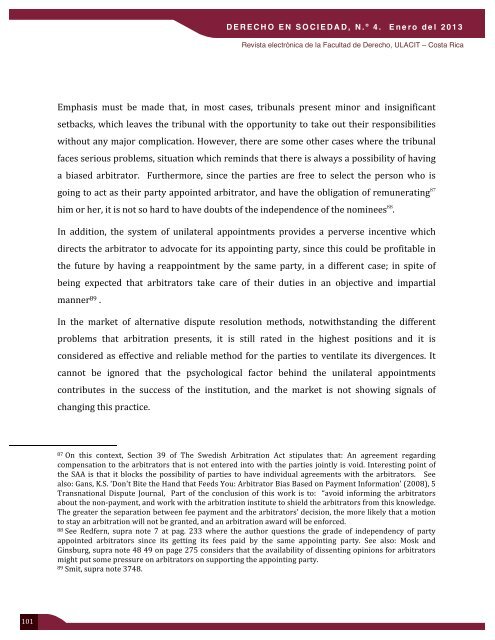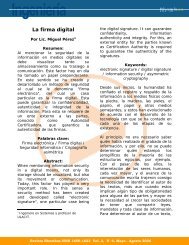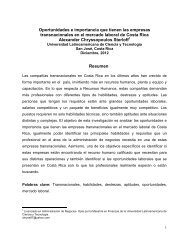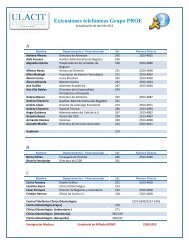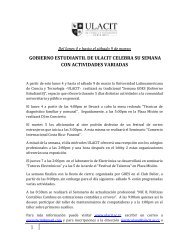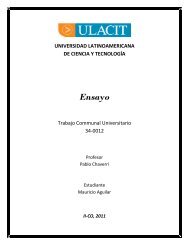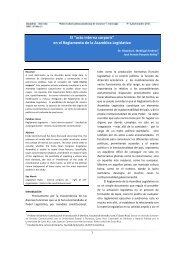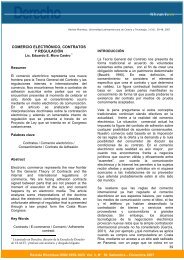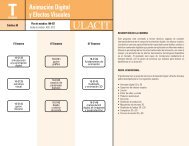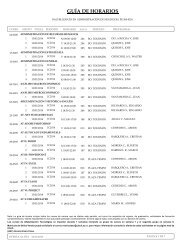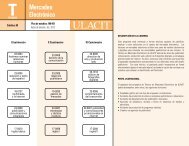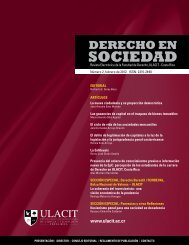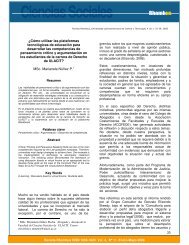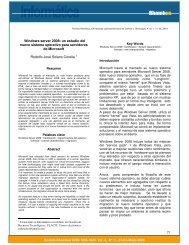IV Edición Revista Derecho en Sociedad - Ulacit
IV Edición Revista Derecho en Sociedad - Ulacit
IV Edición Revista Derecho en Sociedad - Ulacit
Create successful ePaper yourself
Turn your PDF publications into a flip-book with our unique Google optimized e-Paper software.
DERECHO EN SOCIEDAD, N. º 4 . Enero del 2013<br />
<strong>Revista</strong> electrónica de la Facultad de <strong>Derecho</strong>, ULACIT – Costa Rica<br />
Emphasis must be made that, in most cases, tribunals pres<strong>en</strong>t minor and insignificant <br />
setbacks, which leaves the tribunal with the opportunity to take out their responsibilities <br />
without any major complication. However, there are some other cases where the tribunal <br />
faces serious problems, situation which reminds that there is always a possibility of having <br />
a biased arbitrator. Furthermore, since the parties are free to select the person who is <br />
going to act as their party appointed arbitrator, and have the obligation of remunerating 87<br />
him or her, it is not so hard to have doubts of the indep<strong>en</strong>d<strong>en</strong>ce of the nominees 88 . <br />
In addition, the system of unilateral appointm<strong>en</strong>ts provides a perverse inc<strong>en</strong>tive which <br />
directs the arbitrator to advocate for its appointing party, since this could be profitable in <br />
the future by having a reappointm<strong>en</strong>t by the same party, in a differ<strong>en</strong>t case; in spite of <br />
being expected that arbitrators take care of their duties in an objective and impartial <br />
manner 89 . <br />
In the market of alternative dispute resolution methods, notwithstanding the differ<strong>en</strong>t <br />
problems that arbitration pres<strong>en</strong>ts, it is still rated in the highest positions and it is <br />
considered as effective and reliable method for the parties to v<strong>en</strong>tilate its diverg<strong>en</strong>ces. It <br />
cannot be ignored that the psychological factor behind the unilateral appointm<strong>en</strong>ts <br />
contributes in the success of the institution, and the market is not showing signals of <br />
changing this practice. <br />
87 On this context, Section 39 of The Swedish Arbitration Act stipulates that: An agreem<strong>en</strong>t regarding <br />
comp<strong>en</strong>sation to the arbitrators that is not <strong>en</strong>tered into with the parties jointly is void. Interesting point of <br />
the SAA is that it blocks the possibility of parties to have individual agreem<strong>en</strong>ts with the arbitrators. See <br />
also: Gans, K.S. ‘Don't Bite the Hand that Feeds You: Arbitrator Bias Based on Paym<strong>en</strong>t Information' (2008), 5 <br />
Transnational Dispute Journal, Part of the conclusion of this work is to: “avoid informing the arbitrators <br />
about the non-‐paym<strong>en</strong>t, and work with the arbitration institute to shield the arbitrators from this knowledge. <br />
The greater the separation betwe<strong>en</strong> fee paym<strong>en</strong>t and the arbitrators’ decision, the more likely that a motion <br />
to stay an arbitration will not be granted, and an arbitration award will be <strong>en</strong>forced. <br />
88 See Redfern, supra note 7 at pag. 233 where the author questions the grade of indep<strong>en</strong>d<strong>en</strong>cy of party <br />
appointed arbitrators since its getting its fees paid by the same appointing party. See also: Mosk and <br />
Ginsburg, supra note 48 49 on page 275 considers that the availability of diss<strong>en</strong>ting opinions for arbitrators <br />
might put some pressure on arbitrators on supporting the appointing party. <br />
89 Smit, supra note 3748. <br />
101


